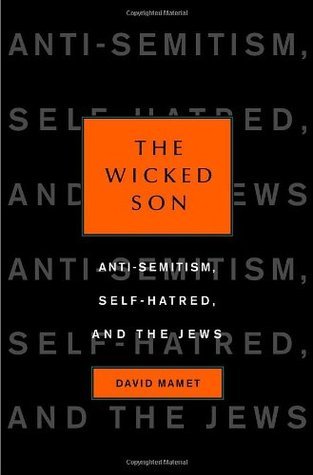
Part of the Jewish Encounter series As might be expected from this fiercely provocative writer, David Mamet’s interest in anti-Semitism is not limited to the modern face of an ancient hatred but encompasses as well the ways in which many Jews have themselves internalized that hatred. Using the metaphor of the Wicked Son at the Passover seder—the child who asks, “What does this story mean to you?”—Mamet confronts what he sees as an insidious predilection among some Jews to seek truth and meaning anywhere—in other religions, in political movements, in mindless entertainment—but in Judaism itself. At the same time, he explores the ways in which the Jewish tradition has long been and still remains the Wicked Son in the eyes of the world. Written with the searing honesty and verbal brilliance that is the hallmark of Mamet’s work, The Wicked Son is a scathing look at one of the most destructive and tenacious forces in contemporary life, a powerfully thought-provoking and important book.
Author
David Alan Mamet is an American author, essayist, playwright, screenwriter and film director. His works are known for their clever, terse, sometimes vulgar dialogue and arcane stylized phrasing, as well as for his exploration of masculinity. As a playwright, he received Tony nominations for Glengarry Glen Ross (1984) and Speed-the-Plow (1988). As a screenwriter, he received Oscar nominations for The Verdict (1982) and Wag the Dog (1997). Mamet's recent books include The Old Religion (1997), a novel about the lynching of Leo Frank; Five Cities of Refuge: Weekly Reflections on Genesis, Exodus, Leviticus, Numbers and Deuteronomy (2004), a Torah commentary, with Rabbi Lawrence Kushner; The Wicked Son (2006), a study of Jewish self-hatred and antisemitism; and Bambi vs. Godzilla, an acerbic commentary on the movie business.